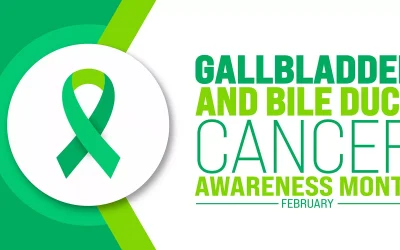Understanding Vitamin B12 Deficiency: Causes, Symptoms, and Treatment

Vitamin B12 is an essential nutrient that helps keep the body’s nerves and blood cells healthy, while playing a key role in maintaining energy levels. When the body doesn’t get enough of this vitamin, certain health issues, such as tiredness, weakness, or numbness in the hands and feet, may start to appear. The most concerning part is that Vitamin B12 deficiency is more common than most people think, and it can affect people of all ages. That said, the good news is that with the right care and treatment, it can be managed effectively.
In this article, we’ll discuss what causes vitamin B12 deficiency, how to recognise the symptoms, and what can be done to treat and prevent it. Let’s start by understanding the significance of Vitamin B12.
Table of Contents
ToggleWhat is Vitamin B12 and Why is it Important?
Vitamin B12, also known as cobalamin, is a water-soluble vitamin that plays several essential roles in the body. It is involved in the production of red blood cells, supports the nervous system, and helps in DNA synthesis and energy metabolism. Even a mild deficiency can affect multiple systems over time.
Unfortunately the body cannot produce vitamin B12 on its own, which means it must be obtained through diet or supplements. Natural sources of vitamin B12 include animal-based foods such as eggs, dairy products, meat, poultry, and fish. Some fortified cereals and plant-based milk alternatives also contain added B12, making them useful for individuals on vegetarian or vegan diets.
Maintaining adequate levels of vitamin B12 is important not only for physical health but also for cognitive function, mood stability, and overall vitality.
Causes of Vitamin B12 Deficiency
Vitamin B12 deficiency can occur due to a range of dietary, medical, and lifestyle factors. Understanding the root cause is essential for effective treatment and long-term management.
Inadequate Dietary Intake
One of the most common reasons for B12 deficiency is a diet low in animal-based foods. Vegetarians and vegans are particularly at risk, as plant-based foods generally do not provide enough vitamin B12.
Poor Absorption in the Digestive Tract
Even with sufficient intake, some individuals may not absorb B12 properly. Conditions such as pernicious anaemia, celiac disease, Crohn’s disease, or post-gastric surgery changes can impair absorption. In older adults, reduced stomach acid levels can also limit the body’s ability to absorb B12 from food.
Certain Medications
Long-term use of medications such as metformin (for diabetes) and proton pump inhibitors or antacids (for acid reflux) can interfere with vitamin B12 absorption over time.
Alcoholism and Chronic Illness
Excessive alcohol intake and some chronic conditions can reduce nutrient absorption and deplete B12 levels in the body.
Recognising the cause of deficiency helps guide the appropriate form of treatment—whether through supplements, dietary adjustments, or managing an underlying medical condition.
Signs and Symptoms of Vitamin B12 Deficiency
Vitamin B12 deficiency can present with a wide range of symptoms, many of which develop gradually and may be mistaken for other conditions. Early identification is important to prevent long-term complications.
Common Symptoms Include:
- Fatigue and Weakness: Low B12 affects red blood cell production, leading to reduced oxygen delivery and persistent tiredness.
- Numbness or Tingling: A deficiency can damage the protective covering of nerves, causing pins-and-needles sensations in the hands and feet.
- Pale or Jaundiced Skin: A lack of B12 may lead to anaemia, giving the skin a pale or slightly yellowish tone.
- Balance Problems: In severe cases, individuals may have difficulty walking or experience unsteadiness.
- Mood Changes: Low B12 levels have been linked to irritability, depression, and even memory issues.
- Glossitis and Mouth Ulcers: A swollen, smooth tongue and frequent mouth sores can be signs of deficiency.
- Heart Palpitations and Shortness of Breath: These can occur due to reduced red blood cell count.
- Cognitive Issues: Difficulty concentrating, forgetfulness, or mental fog may develop over time.
These symptoms may appear mildly at first and worsen if left untreated. Regular screening is especially important for individuals in high-risk groups.
Read more-How Urbanization is Driving the Rise in Diabetes Cases in India
Who Is at Risk?
Vitamin B12 deficiency can affect people of all ages, but certain groups are more vulnerable due to dietary habits, health conditions, or lifestyle factors. Identifying those at risk allows for early intervention and prevention.
- Vegetarians and Vegans: Since vitamin B12 is primarily found in animal-based foods, individuals who follow vegetarian or vegan diets may not get adequate levels through food alone.
- Older Adults: With age, the body’s ability to absorb vitamin B12 from food decreases. Older adults often have lower levels of stomach acid, which is needed to release B12 during digestion.
- People with Digestive Disorders: Conditions such as celiac disease, Crohn’s disease, or gastritis can interfere with the absorption of vitamin B12 from the gastrointestinal tract.
- Individuals Who Have Undergone Gastrointestinal Surgery: Surgeries that affect the stomach or small intestine—such as weight-loss surgery—can reduce B12 absorption significantly.
- Patients on Long-Term Medication: Certain medications, including metformin (for diabetes) and proton pump inhibitors (for acid reflux), can reduce B12 absorption over time.
- Chronic Alcohol Consumers: Alcohol can irritate the gut lining and interfere with nutrient absorption, leading to deficiencies over time.
- Pregnant and Breastfeeding Women: Increased nutritional demands during pregnancy and breastfeeding may put women with marginal B12 intake at risk of deficiency.
Diagnosis and Testing
Diagnosing vitamin B12 deficiency involves a combination of clinical assessment, medical history, and specific blood tests. Since the symptoms can overlap with other conditions, laboratory confirmation is essential.
Blood Tests Commonly Used Include:
- Serum Vitamin B12 Test: Measures the level of B12 in the blood. Low levels suggest a deficiency, though borderline results may require further testing.
- Complete Blood Count (CBC): May reveal signs of anaemia, such as large red blood cells (macrocytosis), which are often associated with B12 deficiency.
- Methylmalonic Acid (MMA) and Homocysteine Tests: Elevated levels of these substances can indicate early or functional B12 deficiency, even when serum B12 levels are borderline.
- Intrinsic Factor Antibody Test: Helps diagnose pernicious anaemia, an autoimmune condition that affects B12 absorption.
In many cases, symptoms improve quickly once the deficiency is identified and treated. Early diagnosis not only reverses symptoms but also prevents long-term complications such as nerve damage.
Read More: How to Boost Immunity Naturally: Evidence-Based Tips for Stronger Immunity
Treatment Options for Vitamin B12 Deficiency
The treatment for vitamin B12 deficiency depends on the severity of the deficiency and its underlying cause. In most cases, restoring B12 levels is straightforward and highly effective with timely intervention.
Oral Supplements
For individuals with mild to moderate deficiency and no absorption issues, high-dose oral vitamin B12 supplements are often sufficient. These are available over the counter or may be prescribed in specific doses.
Vitamin B12 Injections
In cases of severe deficiency, malabsorption, or pernicious anaemia, intramuscular B12 injections are commonly used. These help restore levels quickly and bypass the digestive system.
Dietary Modifications
Including more B12-rich foods in the daily diet is recommended, particularly for those with borderline deficiency. Good sources include:
- Eggs
- Milk and dairy products
- Meat and poultry
- Fish (such as salmon and tuna)
- Fortified cereals or plant-based milks
Managing Underlying Conditions
If the deficiency is due to a chronic illness or medication, the underlying issue must also be addressed. This may include adjusting medication, treating gastrointestinal disorders, or scheduling regular follow-ups for ongoing care.
With the right approach, most individuals respond well to treatment and can maintain healthy B12 levels with ongoing monitoring.
Read more-Why a Balanced Diet Matters: Importance, Benefits, and a Practical Diet Chart
Can Vitamin B12 Deficiency Be Prevented?
Yes, in many cases, vitamin B12 deficiency can be prevented through simple lifestyle and dietary choices, especially for those who are aware of their risk factors.
Follow a Balanced Diet
Including sufficient amounts of animal-based foods such as eggs, dairy, meat, and fish helps maintain adequate B12 levels. For individuals following a vegetarian or vegan diet, fortified cereals, plant-based milks, and supplements are recommended.
Routine Screening for At-Risk Individuals
Regular health check-ups and blood tests can help detect B12 deficiency early, particularly in older adults, people with chronic digestive issues, or those on long-term medications that affect absorption.
Supplementation When Needed
For individuals at higher risk, such as pregnant women, elderly adults, or strict vegetarians, oral B12 supplements may be advised even before symptoms appear. These help maintain optimal levels and prevent deficiency from developing.
Managing Underlying Health Conditions
Proper treatment of gastrointestinal disorders, avoiding self-medication with acid-reducing drugs, and limiting alcohol intake can also help preserve healthy B12 absorption.
Preventive care, when guided by a healthcare professional, can go a long way in protecting long-term nerve and blood health.
When to See a Doctor
While mild vitamin B12 deficiency may go unnoticed in the early stages, certain symptoms should not be ignored, especially if they begin to interfere with daily life or worsen over time. Red flags that require medical attention include:
- Persistent fatigue or generalised weakness
- Numbness or tingling in the hands and feet
- Difficulty with balance or coordination
- Memory lapses or difficulty concentrating
- Pale or yellowish skin tone
- Shortness of breath or heart palpitations
- Pain or soreness in the tongue or mouth
In such cases, prompt medical evaluation is essential. Early diagnosis not only helps reverse symptoms more effectively but also prevents irreversible complications such as nerve damage or cognitive decline. Individuals in high-risk groups, such as older adults, vegetarians, or those with chronic illnesses, should consider routine screening even in the absence of symptoms.
Conclusion
Vitamin B12 plays a vital role in maintaining nerve function, red blood cell production, and overall energy levels. Deficiency can develop gradually and may lead to serious health issues if left untreated. With timely diagnosis, simple dietary changes, and appropriate treatment, most individuals can recover fully and prevent recurrence.
To consult a specialist or get tested for vitamin B12 deficiency, visit Graphic Era Hospital or book an appointment with our expert medical team today.
Frequently Asked Questions
Can vitamin B12 deficiency cause permanent nerve damage?
If left untreated for a long time, B12 deficiency can lead to irreversible nerve damage. Early diagnosis and treatment are important to prevent long-term complications.
How long does it take to recover from a vitamin B12 deficiency?
Most people start feeling better within a few days to weeks of treatment, but full recovery may take a few months depending on the severity and duration of the deficiency.
Are plant-based sources enough to meet daily B12 needs?
Plant-based foods typically do not provide sufficient vitamin B12. Vegetarians and vegans are advised to consume fortified foods or take B12 supplements to maintain adequate levels.
Can B12 deficiency return after treatment?
Yes, especially if the underlying cause—such as malabsorption or a restrictive diet—is not addressed. Ongoing monitoring and preventive care are essential.
Is it safe to take B12 supplements without a confirmed deficiency?
While vitamin B12 is generally safe, unnecessary supplementation should be avoided. It’s best to consult a doctor before starting any vitamin regimen.
By Specialities
- Bariatric Surgery
- Cancer Care
- Cardiology
- Dental
- Dermatology
- Diabetes & Endocrinology
- Endocrinology and Diabetes
- ENT (Ear Nose Throat)
- Eye Care
- Gastroenterology
- Haematology
- Health Awareness
- Health Care
- Health Tips
- Hematology
- Hepatology
- Internal Medicine
- Mental Health and Behavioural Sciences
- Metabolic
- Neonatology
- Nephrology
- Neurology
- Nutrition & Dietetics
- Obstetrics & Gynaecology
- Oncology
- Ophthalmology
- Orthopaedics
- Paediatric
- Physiotherapy & Rehabilitation
- Plastic and Reconstructive Surgery
- Psychology
- Pulmonology
- Rheumatology
- Spine
- Urology
Recent Posts
Need expert medical advice?
Share your details and our healthcare specialists will reach out to assist you.
By proceeding, you acknowledge and agree to our Privacy Policy, Terms of Use, and Disclaimer.



















